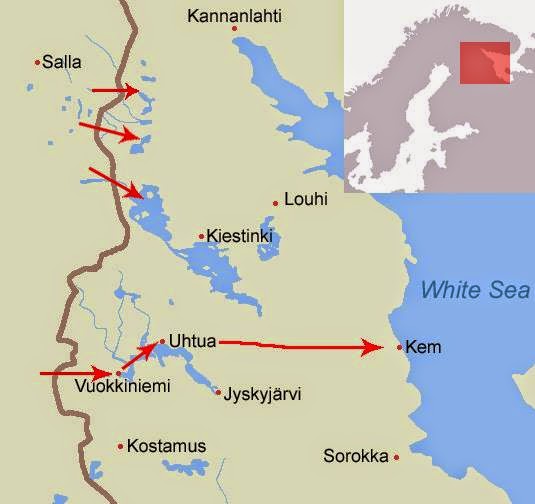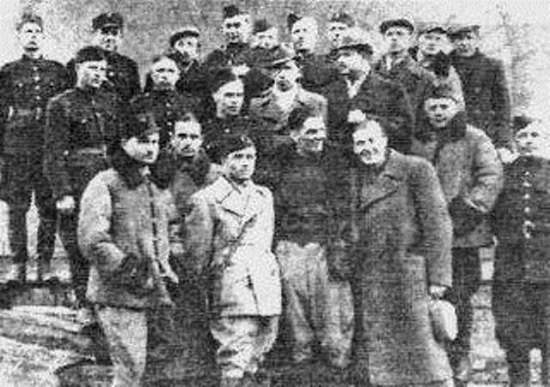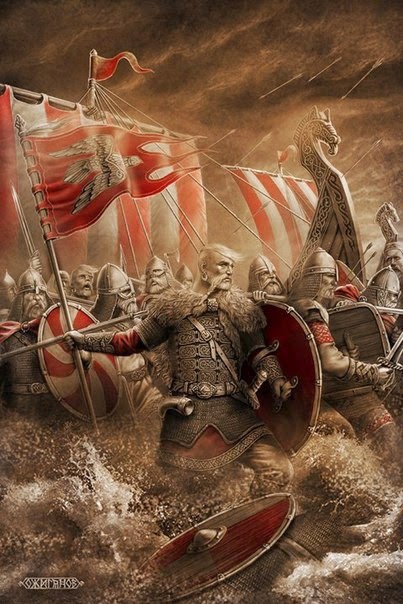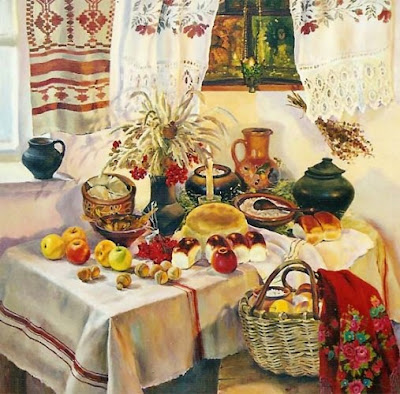Karelian independence struggle
Karelian independence struggle
 |
| National flag of Karelia |
In modern Russian journalism, even in science, still reigns confusion between the terms "nation", "nationality", "ethnicity" and "people", this is a personal opinion Ukrainian and ordinary Russian citizens, with whom I have the honor to communicate in social networks. Try in general understand this question, so to speak - to help the citizens of Russia, who are unable to recognize themselves above mentioned concepts.
Ethnicity (or its synonym passport – nationality) – a genetic and cultural phenomenon. Therefore, to deny the existence of a separate ethnic group Karelian course impossible. However, the nation is a social and civic phenomenon that can include many ethnic groups. The nation arises when society is government and forms the state.
European Classic example – the "Swiss nation", which is mainly composed of German-speaking, French-speaking and Italy-speaking citizens but who consider themselves exclusively is Swiss, not the Germans, French or Italians. Stability is ensured by its Swiss Confederation or a federal parliamentary republic, where each canton has a maximum municipality. It is a democratic government historically has been more attractive to the citizens of this country than others belonging to the empires – the Austro-Hungarian, The Greater German, Italian and French.
In Karelia indigenous people also had a prototype of the formation of a democratic nation in the years 1918-1922. Northern Karelian State in Uhta united republic of Karelians, Russians and Finns well known as the Viena expedition. But the famous Karelian labor commune created Bolshevik orders by Moscow, most historians do not hesitate to call the self-governing national state formation. Of course, certain ethnic features were present in it (there was ridiculous attempt by the government to develop Red-Finnish Karelian based on Cyrillic alphabet), but they are by definition not lead to the formation of Karelian nation as a civil entity. Soviet Bolshevik internationalism generally suspicious of all nations (remember famine, persecution and deportation) promoting utopia "universal brotherhood" – though, as everyone now knows, it's quickly are turned on dystopia of GULAG.
It was a military expedition in March 1918 by Finnish volunteer forces to annex White Karelia (Vienan Karjala) from Bolshevist Russia. It was one of the many "kinship wars" (Heimosodat) fought near the newly independent Finland during the Russian Civil War. The Russian East Karelia was never a part of the Swedish Empire or the Grand Duchy of Finland and it was at the time mostly inhabited by Karelians. However, many advocates of a Greater Finland considered these Karelians a "kindred" Finnish nation and supported the annexation of Russian East Karelia to Finland.
Looking through various websites Russia and Karelia found very interesting work Head of Cultural Petrozavodsk State University Professor Vasily Mikhailovich Pivoyev "Ethnicity and Nation: problem identification". The author is deeply explores the formation of nations based on common historical and territorial identity. However, one conclusion of a respected professor would like to argue: "It seems obvious fact that in fact there is no national culture Karelia Republic of Karelia, but is Russian national culture, national culture Karelia, Finnish national culture, national culture Vepsians, Ukrainian national culture and other peoples but one national culture Karelia there, and do not need to create it".
In my opinion, as in the opinion of Karelian patriots are the author, conducted on other pages clear division between ethnic group and nation, he falls into their unintentional confusion. In Karelia Ethnic Culture Russians, Karelians, Finns and Vepsians and other nations - but the phenomenon of national culture can only base on all-republican idea. Recall again Switzerland. And pay attention to the next Karelia mono Finland – Finnish grand cultural revival of the XIX century. was largely inspired by the same ethnic Swedes (J. Snellman, K. Runeberg, Z. Topelius, etc.), which, however, are considered the founders of the Finnish national identity, as well as further valiant Swedish Baron, future Marshal and President Finland – Carl Gustav Emil Mannerheim.
In modern Karelia invisible has its own general republican identity that can become the basis for the emergence of the nation. Even many local Russians getting into other regions and experiencing a cultural and psychological difference with them, often call themselves Karjalaiset, putting the word no ethnic and territorial sense (this applies to border regions with Finland).
In general, the Karelian special treatment "being Russian" formulated artist Vyacheslav Agapito, co-chairman of the movement "Russian North": "In fact, Russian culture is extremely diverse. For example, our, Onega culture where there is an age of convergence and interaction with other northern peoples – the Finns, Sami, is very different from the culture of, say, Kuban and Siberia. Our Russian identity should withdraw from the tradition of Novgorod Republic or Suzdal, where there is always particularly valued civil government, and subsequently there has never been serfdom, which had a significant impact on the average Muscovite Rus mentality...".
By the way, it is possible that in historical perspective will be many Russian-speaking nations, after the possible collapse of Russia. How, for example, English-speaking nations – British, Irish, Canadians, Australians, New Zealanders. They actively cooperate with each other in global politics, but also preserve their national identity and not eager to re-merge "single empire" like Russia.
Nation is a civilian phenomenon, and where there is no civil government cannot occur and the nation. Then, instead of the Nation - as the subject of politics - there is only the "population", which is the subject of any action outside. And for this reason, in Karelia, unfortunately, has not evolved rehionalistska active consciousness, similar to that for a quarter century in developing modern European countries – Finland, Slovakia, Iceland, Ireland. All this has replaced consciousness passive tone, provincialism, accustomed to delegate all powers, resources and taxes to Moscow, humbly waiting out subsidies and preferences like gold from heaven.
It is clear that the question of Karelian nation cannot get around the problem of the Karelian own ethnic group. But the nation, as has been written to the ethnic group still not reduced. I think that none of the Patriots Free Karelia or Välly Karjala would not mind Karelian language finally got a second state at least in the Republic of Karelia. But here the main question is its own development, and it should resolve itself Karelian ethnic elite – scientists, intellectuals, politicians and writers. When the Karelian language will be written at least one textbook for university economics – then we can say that it is sufficiently developed, and did not remain at the level of historical folklore.
But the main criterion for the emergence of Karelian nation is still healthy formation of republican patriotism. Those who are struggling today against total sales Karelian land, civil government and its cultural identity, and make the backbone of future Karelian Nation, which will be free and independent of Muscovy (Kremlin Russia).
By Denis Kovaljöv







Коментарі
Дописати коментар